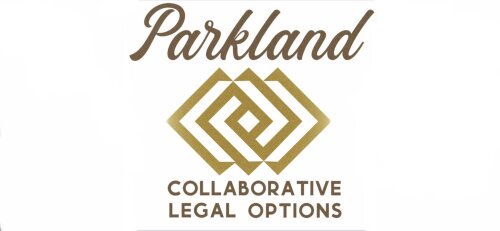Best Franchising Lawyers in Dauphin
Share your needs with us, get contacted by law firms.
Free. Takes 2 min.
List of the best lawyers in Dauphin, Canada
About Franchising Law in Dauphin, Canada
Franchising is a popular business model in Dauphin, Canada, allowing businesses to expand by licensing their operations, products, and branding to third-party operators, or franchisees. This model offers a way for entrepreneurs and small business owners to invest in a proven system with established recognition. Franchising is governed by a combination of federal and provincial laws, which aim to protect both franchisees and franchisors by setting out clear guidelines and obligations. In Dauphin, franchising contributes significantly to the local economy by generating jobs and helping with business growth and diversification.
Why You May Need a Lawyer
Engaging the services of a lawyer in franchising matters might be crucial in numerous scenarios. You might require legal advice when drafting or reviewing a franchise agreement, addressing disputes between franchisors and franchisees, or when seeking to understand and comply with regulatory requirements. A lawyer can be instrumental in negotiations, protecting your intellectual property, and ensuring you understand your rights and obligations under the law. Without proper legal guidance, you risk facing financial and legal challenges that could adversely affect your business operations.
Local Laws Overview
The legal framework governing franchising in Dauphin is influenced by both provincial and federal laws. Key areas of concern include disclosure requirements, misrepresentation, and good faith dealings. Franchisors are typically required to provide potential franchisees with a franchise disclosure document that details material facts necessary for franchisees to make informed decisions. The laws also emphasize the franchisor's obligation to operate with transparency and fair dealing. Additionally, certain regulations pertain to consumer protection and competitive practices, affecting how franchises can be marketed and operated.
Frequently Asked Questions
What is the first step to take before buying a franchise?
Before purchasing a franchise, conduct thorough research and due diligence. Review the franchise disclosure document carefully to understand the obligations and costs involved, and seek legal advice to evaluate the terms of the franchise agreement.
What are the main components of a franchise agreement?
A franchise agreement typically includes the rights and obligations of both the franchisor and franchisee, fees and costs, duration of the agreement, territorial rights, training and support provided, and terms for termination and renewal.
Is a franchisee considered an independent contractor?
Yes, usually franchisees operate as independent contractors, running their business independently while adhering to the operational standards and brand guidelines established by the franchisor.
Can a franchise agreement be negotiated?
While some terms may be standardized, aspects of a franchise agreement can sometimes be negotiated. It's essential to seek legal assistance to understand which terms are negotiable and how to protect your interests.
What happens if a franchisor fails to provide a disclosure document?
If a franchisor does not provide a disclosure document, or it is incomplete, the franchisee may have legal grounds for rescission of the franchise agreement and may pursue damages for any losses incurred.
How are franchise royalties calculated?
Franchise royalties are typically calculated as a percentage of gross sales, but the exact terms, including the percentage rate and payment schedule, are defined in the franchise agreement.
What is the typical duration of a franchise agreement?
Franchise agreements commonly last between five to twenty years, depending on the franchise system, with options for renewal specified in the original agreement.
Are there government agencies that regulate franchising in Dauphin?
Franchising is regulated at both federal and provincial levels. Key regulatory bodies might include the Competition Bureau of Canada and provincial consumer affairs departments that oversee business practices and consumer protection.
Do franchisors provide training to franchisees?
Yes, most franchisors offer initial and ongoing training programs to help franchisees effectively operate their business in accordance with the brand standards and procedures.
What are the risks of investing in a franchise?
Investing in a franchise involves risks such as high entry costs, strict adherence to franchisor guidelines, market competition, and potential for franchisor-franchisee disputes. Conducting thorough due diligence and consulting with a lawyer can help mitigate these risks.
Additional Resources
For additional assistance, potential franchisees in Dauphin can contact organizations such as the Canadian Franchise Association, which offers resources and guidance for both franchisors and franchisees. It's also advisable to consult with the Manitoba Consumer Protection Office for any provincial regulations and consumer rights information.
Next Steps
If you are considering entering the world of franchising, the next steps involve consulting with a qualified franchise lawyer to review any documents, discuss your rights and obligations, and help you make informed decisions. It's beneficial to attend franchising seminars, workshops, and to network with current franchisees to gain valuable insights.
Lawzana helps you find the best lawyers and law firms in Dauphin through a curated and pre-screened list of qualified legal professionals. Our platform offers rankings and detailed profiles of attorneys and law firms, allowing you to compare based on practice areas, including Franchising, experience, and client feedback.
Each profile includes a description of the firm's areas of practice, client reviews, team members and partners, year of establishment, spoken languages, office locations, contact information, social media presence, and any published articles or resources. Most firms on our platform speak English and are experienced in both local and international legal matters.
Get a quote from top-rated law firms in Dauphin, Canada — quickly, securely, and without unnecessary hassle.
Disclaimer:
The information provided on this page is for general informational purposes only and does not constitute legal advice. While we strive to ensure the accuracy and relevance of the content, legal information may change over time, and interpretations of the law can vary. You should always consult with a qualified legal professional for advice specific to your situation.
We disclaim all liability for actions taken or not taken based on the content of this page. If you believe any information is incorrect or outdated, please contact us, and we will review and update it where appropriate.








